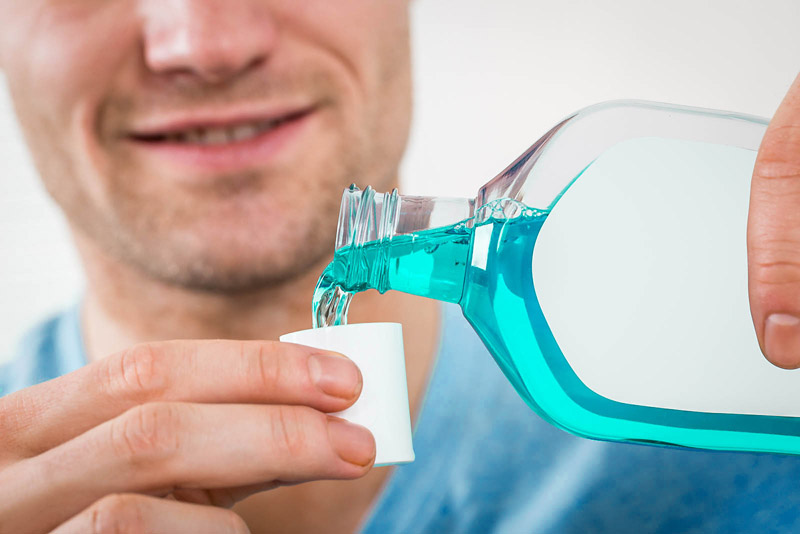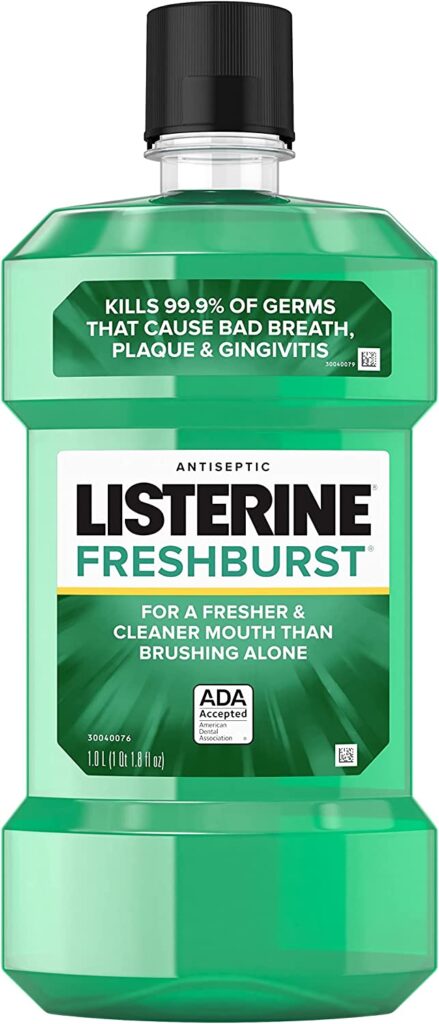
Over the years, mouthwash have grown to become a common oral hygiene product to clean your teeth and mouth. Available in both liquid and spray form, mouthwash freshen one’s breath while preventing cavities and gum diseases such as gingivitis. Some of you may have wondered, is mouthwash flammable?
The definitive answer is YES, mouthwash is flammable.
As such, mouthwash can be dangerous if improperly used. In fact, several big-brand mouthwash manufacturers including Listerine have listed several of its mouthwash as flammable due to the inclusion of ethanol in its product lineup.
What Ingredients Are in a Mouthwash?
There are many different types of mouthwash available on the market. Cosmetic mouthwash for instance, are primarily used to freshen the breath and offer little benefit beyond that.
In contrast, antiseptic and prescription mouthwash (also known as therapeutic mouthwash) contains active ingredients that help to fight plaque and gum diseases. In particular, various clinical trials have concluded that mouthwash is effective in inhibiting the grow of Streptococcus mutans, the bacteria responsible for over 90% of all tooth decay.
That said, most mouthwash contain ingredients including:
- Water. It is the base ingredient for all mouthwash products
- Fluoride. This naturally found mineral protect the tooth against cavities while strengthening the enamel through remineralization.
- Alcohol. This helps to kill bacteria while acting as a carrier agent for active ingredients. Ethanol is primarily used in the product of mouthwash.
- Flavoring agents. The most common flavoring agent used is a sugar alcohol named sorbitol; it is also used as a moisturizer.
- Sweeteners. As the name sounds, it makes mouthwash more palatable to the mouth. Common sweeteners used in mouthwash include sodium saccharin, sucralose and sorbitol.
- Essential oils. The inclusion of essential oils such as eucalyptol and menthol gives mouthwash antimicrobial properties.
- Chlorhexidine: This is added in therapeutic mouthwash to treat gingivitis and periodontitis. However, chlorhexidine-containing mouthwash may cause staining of the teeth and should only be used for a short period.
Why Is Mouthwash Flammable?
This is due to the presence of flammable ingredients that give mouthwash its anti-bacterial properties.
For alcohol-containing mouthwash. it is primarily due to the presence of ethanol. With a flashpoint—the lowest temperature at which a substance evaporates to form an ignitable, vapor-air mixture—of 54 degree Fahrenheit (or 12 degree Celsius), ethanol can ignite and burn at most ambient temperature. Most big-brand mouthwash contain anywhere between 10 and 27% alcohol.
You may be interested in: Can You Put Mouthwash In A Waterpik Water Flosser?
For instance, Listerine Total Care Antibacterial (AntiCavity) Mouthwash, which has 26.9% ethanol, is labelled as a “flammable liquid and vapor” under Occupational Safety and Health Administration (OSHA) Hazard Communication Standard. Similarly, a material safety data sheet released by Pfizer have also labelled Listerine’s Freshburst Antiseptic Mouthwash as a “flammable and hazardous” substance. To summarise, any ethanol-containing mouthwash is flammable and will readily catch fire and burn when exposed to an open flame.
Another highly flammable ingredients used in antiseptic mouthwash is chlorine dioxide. The substance is commonly used in water treatment facilities to disinfect drinking water as well as in mouthwash to remove bad breath and reduce plaque. That said, chlorine dioxide is used in an extremely low concentration in mouthwash and is unlikely to cause any issues.
On the other hand, while alcohol-free mouthwash may not contain alcohols, there are numerous substances such as essential oils and sweeteners that are flammable. While the flash point for each essential oil is different, most common oils are classified as a Class 3 Flammable Liquid. Thus, alcohol-free mouthwash should also be treated as a flammable product and be kept away from heat or open fire.
In conclusion, mouthwash can be flammable even if they do not contain high levels of alcohol. If you have any concerns, it is recommended to check the label or contact the manufacturer of the specific brand or type of mouthwash. It’s important to keep this in mind and that it should be stored away from any sources of heat.







